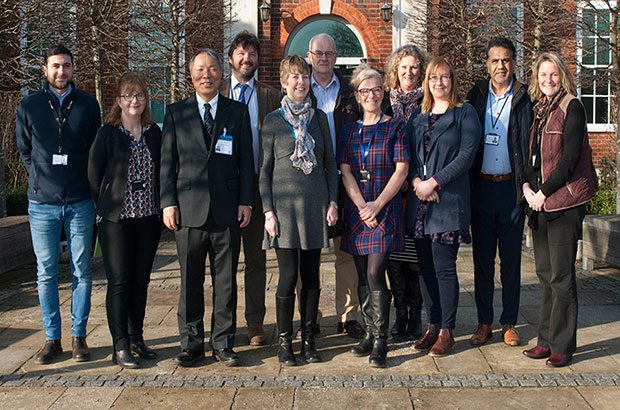Sian Mitchell, who is the Parasitology Discipline Champion at APHA, talks about how APHA supports the transport of horses around the world by performing statutory testing for certification purposes.
 Parasites testing
Parasites testing
Two such tests involve looking for antibodies to the parasites Babesia caballi and Thelieria equi (commonly referred to as equine piroplasmosis). These parasites infect red blood cells and are generally spread to horses by tick bites.
Clinical signs in horses
Infection can cause a range of clinical signs, with T. equi infection usually being more serious than B. caballi. Acutely infected horses may show high temperature, anaemia due to red blood cell destruction, colic and swelling of the lower body and limbs. There may also be respiratory signs. Chronically affected horses may just show poor performance or be in poor body condition. Once infected, horses can remain carriers for years or for life. Strenuous exercise of these animals may cause a re-emergence of clinical signs.
Situation in the UK, Europe and the rest of the world
There have been no reports of tick transmission of infection to horses in the UK to date, although the disease is present in Europe and elsewhere in the world. However there is evidence to suggest that the range of Dermacentor reticulatus tick, which can spread B. caballi, may be expanding in Europe and the UK, thus increasing the risk.
Diagnostic methods
There are a number of diagnostic methods available to diagnose infection, one of which involves looking for antibodies to the parasites. These antibody tests are required by the importing countries. APHA offers a Complement Fixation Test (CFT), an Indirect Fluorescent Antibody Test (IFAT) and a Competition Enzyme Linked Immunosorbent Assay (cELISA) test to detect antibodies to these parasites.
OIE visit to APHA Weybridge
We were recently very pleased to host a visit to our Weybridge laboratories by Prof Ikuo Igarashi. The Professor heads the OIE Reference Laboratory for equine piroplasmosis at the Obihiro University of Agriculture and Veterinary Medicine in Hokkaido, Japan.
Prof. Igarashi met a number of staff at APHA and enjoyed a tour of the laboratories in our Stewart Stockman building and the wider site. Prof Igarashi was keen to discuss setting up a comparison of serological test methods as a prelude to a wider ring-trial, where other equine piroplasmosis testing laboratories would be invited to take part. We are planning further collaboration.

Follow APHA on Twitter and don't forget to sign up to email alerts.

Recent Comments